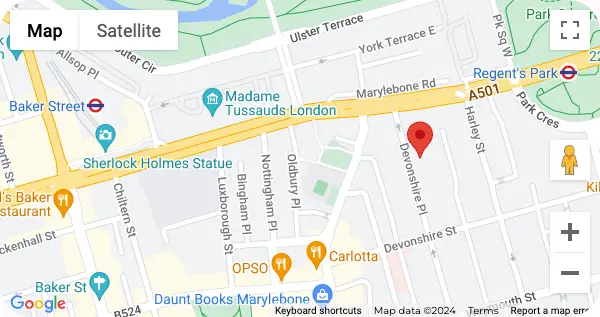Summary
- Ozempic is increased slowly so your body can settle in without feeling unwell.
- Treatment dose starts at 0.25 mg and slowly increases to 0.5 mg, 1 mg, and eventually 2 mg if advised by your doctor.
- The higher dose you use, the better results you will get.
- Avoid changing dose without your doctor’s approval to ensure safety all throughout your treatment.
Introduction to Ozempic
Ozempic is a once a week injectable medicine that was first developed to help manage the blood sugar levels of patients with diabetes. Now, many doctors have started prescribing it to support weight loss.
Ozempic affect your gut and digestion, that is why your body needs time to get used to it and why doctors avoid giving higher doses at the start of the treatment. Slowly increasing the dose keeps side effects mild and makes the treatment easier to handle.
To learn more about GLP-1 weight loss medication, read our Ozempic treatment page.
How Does it Work?
Ozempic acts like a natural gut hormone called GLP-1, which helps control a few key things like slowing down your digestion, cutting your cravings, helping pancreas release insulin more effectively, and helps control blood sugar level.
Understanding How Ozempic Doses Increase
Ozempic follows a set dosing plan used around the world for diabetes and weight management.
| Time Period | Dose | What This Stage Does |
| Weeks 1 to 4 | 0.25 mg |
|
| Weeks 5 to 8 | 0.5 mg |
|
| Weeks 9 to 12 | 1 mg |
|
| Week 13+ | Up to 2 mg |
|
Starting your dose low is all about protecting your gut. Most side effects that may show up early come from your stomach adjusting to Ozempic.
Think of the starting dose like a warm up before a workout. If you skip it and jump straight to the heavy lifting, you are much more likely to feel sick and have bad side effects. That is why people stop using Ozempic before the real results show. Taking it slow is the secret to making Ozempic work for long-term without making you feel unwell.
Why Your Dose Increases
When you first start the treatment, even a tiny amount of medication is enough to show progress on slowing down your digestion and appetite.
Over time, your body adapts, it gets used to that starter amount and the effects you felt at the beginning might start to fade.
To keep your progress going without shocking your system, your doctor will gently increase the dose. The goal is to keep the medicine working effectively without overwhelming your body all at once.
Why Some People Need Higher Doses
You may benefit from a higher dose if:
- Your blood sugar is not yet managed
- Weight loss has paused
- Cravings start to return
- Your appetite feels less controlled
Ozempic works better at higher doses, and increasing dose helps your body reach the level where the benefits are more stable and consistent.
Why your doctor guides the dose
Only a doctor can decide when to increase or not. They may keep you on lower dose if:
- You have persistent side effects
- Your blood sugar is already managed
- You are steadily losing weight
- You have medical conditions that need more care
This is one of the reasons people often see better results when they are treated by a specialist doctor.
How Ozempic Dose Increases Work
Clinicians follow a simple rule in increasing your dose, that is stay on each dose for at least four weeks before moving up. It lets your body time to settle in. Some people stay longer on lower doses if they are already seeing good progress. There is no need to rush, dose increases are tailored for each individual.
Effective & professional doctor-led Ozempic at our central London clinic
Verified Before & After
Verified Before & After
What Happens When the Dose Goes Up
Benefits You May Notice
As your Ozempic dose increases, the effects tend to become stronger. Many people feel:
- Better appetite control
- Steady blood sugar
- More weight loss
- Lower diabetes-related complications
Possible Risks to Keep in Mind
A higher may also mean a higher chance of side effects. Most are still mild like:
- Nausea
- Mild vomiting
- Bloating
- Constipation
- Diarrhoea
More serious side effects like pancreatitis, gallbladder problems, or dehydration are rare but important to monitor.
Conclusion
Always remember that everyone handles Ozempic differently. Regular check-ins with your doctor are important to make sure your treatment supports your body.
Moving up to a higher dose is what keeps Ozempic effective for you in long-term treatment. By increasing the amount slowly, you give your body time to catch up. This lowers the chance of feeling sick and allows your doctor to tailor the plan to fit your specific needs.
If you want extra help during treatment, you can read resources like:
- How Long Do Ozempic Side Effects Last? UK Patient Guide
- What Are The Effects of Ozempic in Your Body and Its Timeline
- How to Use Ozempic Pen: Step-by-Step Guide
- Ozempic Dosage Chart: Weekly Schedule & Clicks Explained
- Ozempic Cost in the UK: Pricing, Coverage, & Savings
FAQs
- Why do I have to start on a low dose?
Starting low keeps the side effects mild and gives your body chance to adjust before going up with a higher dose.
- How long will I stay on 0.25 mg?
Most people stay on 0.25 mg for four weeks depending if you are sensitive to the medication, your doctor may extend this.
- What is the maximum dose?
The highest recommended dose is 2 mg per week.
- Can I increase the dose faster if I am not losing weight?
No. Rushing the process does not help you lose weight faster, it just makes you much more likely to get sick.
- What side effects may appear after increasing the dose?
You might notice nausea, bloating, lower appetite, or vomiting. But they are all temporary.
- Is it safe to use leftover liquid from the pen (“golden dosing”)?
It is unsafe and inaccurate, and medical guidelines strongly warn against it.
Reserve an ozempic appointment
One of our experts will be more than happy to answer any questions you have.
Book AppointmentDanny Sim
★★★★★
Was amazing. First time in London and didn’t know well about how things worked but I was explained perfectly on the procedures and my issues were treated very properly. Strongly recommended!
26th January 2026
Matt Empringham
★★★★★
Great experience
28th January 2026
Laura Storto
★★★★★
Rose was Great
27th January 2026












